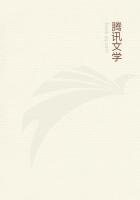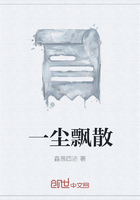Fouquet has obeyed to the letter: "Did not my King wrong me?"Fouquet may say to himself. Truly, Herr General, your King's Order was a little unwise; as you (who were on the ground, and your King not) knew it to be. An unwise Order;--perhaps not inexcusable in the sudden circumstances. And perhaps a still more perfect Bayard would have preferred obeying such a King in spirit, rather than in letter, and thereby doing him vital service AGAINST his temporary will? It is not doubted but Fouquet, left to himself and his 13,000, with the Fortresses and Garrisons about him, would have maintained himself in Silesia till help came. The issue is,--Fouquet has probably lost this fine King his Silesia, for the time being; and beyond any question, has lost him 10,000 Prussian-Spartan fighters, and a fine General whom he could ill spare!--In a word, the Gate of Silesia is burst open; and Loudon has every prospect of taking Glatz, which will keep it so.
What a thunder-bolt for Friedrich! One of the last pillars struck away from his tottering affairs. "Inevitable, then? We are over with it, then?" One may fancy Friedrich's reflections. But he showed nothing of them to anybody; in a few hours, had his mind composed, and new plans on the anvil. On the morrow of that Austrian Joy-Firing,--morrow, or some day close on it (ought to have been dated, but is not),--there went from him, to Magdeburg, the Order: "Have me such and such quantities of Siege-Artillery in a state of readiness." [Tempelhof, iv. 51.] Already meaning, it is thought, or contemplating as possible a certain Siege, which surprised everybody before long! A most inventive, enterprising being; no end to his contrivances and unexpected outbreaks;especially when you have him jammed into a corner, and fancy it is all over with him!
"To no other General," says Tempelhof, "would such a notion of besieging Dresden have occurred; or if it had suggested itself, the hideous difficulties would at once have banished it again, or left it only as a pious wish. But it is strokes of this kind that characterize the great man. Often enough they have succeeded, been decisive of great campaigns and wars, and become splendid in the eyes of all mankind; sometimes, as in this case, they have only deserved to succeed, and to be splendid in the eyes of judges.
How get these masses of enemies lured away, so that you could try such a thing? There lay the difficulty; insuperable altogether, except by the most fine and appropriate treatment. Of a truth, it required a connected series of the wisest measures and most secret artifices of war;--and withal, that you should throw over them such a veil as would lead your enemy to see in them precisely the reverse of what they meant. How all this was to be set in action, and how the Enemy's own plans, intentions and moods of mind were to be used as raw material for attainment of your object,--studious readers will best see in the manoeuvres of the King in his now more than critical condition; which do certainly exhibit the completest masterpiece in the Art of leading Armies that Europe has ever seen."Tempelhof is well enough aware, as readers should continue to be, that, primarily, and onward for three weeks more, not Dresden, but the getting to Silesia on good terms, is Friedrich's main enterprise: Dresden only a supplement or substitute, a second string to his bow, till the first fail. But, in effect, the two enterprises or strings coincide, or are one, till the first of them fail; and Tempelhof's eulogy will apply to either. The initiatory step to either is a Second Feat of Marching;--still notabler than the former, which has had this poor issue. Soldiers of the studious or scientific sort, if there are yet any such among us, will naturally go to Tempelhof, and fearlessly encounter the ruggedest Documents and Books, if Tempelhof leave them dubious on any point (which he hardly will): to ingenuous readers of other sorts, who will take a little pains for understanding the thing, perhaps the following intermittent far-off glimpses may suffice. [Mitchell, ii.
162 et seq.; and Tempelhof (iv. 50-53 et seq.), as a scientific check on Mitchell, or unconscious fellow-witness with him,--agreeing beautifully almost always.]
On ascertaining the Landshut disaster, Friedrich falls back a little; northward to Gross-Dobritz: "Possibly Daun will think us cowed by what has happened; and may try something on us?" Daun is by no means sure of this COWED phenomenon, or of the retreat it has made; and tries nothing on it; only rides up daily to it, to ascertain that it is there; and diligently sends out parties to watch the Northeastward parts, where run the Silesian Roads.
After about a week of this, and some disappointments, Friedrich decides to march in earnest. There had, one day, come report of Lacy's being detached, Lacy with a strong Division, to block the Silesian roads; but that, on trial, proved to be false.
"Pshaw, nothing for us but to go ourselves!" concludes Friedrich,--and, JULY 1st, sends off his Bakery and Heavy Baggage; indicating to Mitchell, "To-morrow morning at 3!"--Here is Mitchell's own account; accurate in every particular, as we find: [Mitchell, ii.
164; Tempelhof, iv. 54.]
WEDNESDAY, JULY 2d. "From Gross-Dobritz to Quosdorf [to Quosdorf, a poor Hamlet there, not QuoLsdorf, as many write, which is a Town far enough from there]--the Army marched accordingly. In two columns; baggage, bakery and artillery in a third; through a country extremely covered with wood. Were attacked by some Uhlans and Hussars; whom a few cannon-shot sent to the road again.














